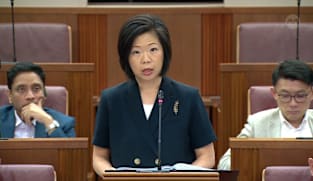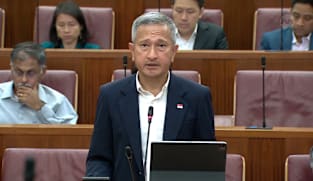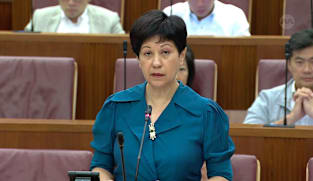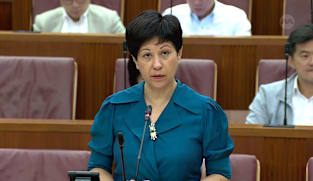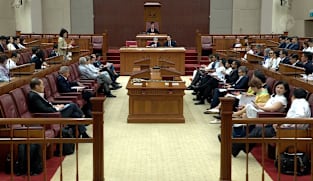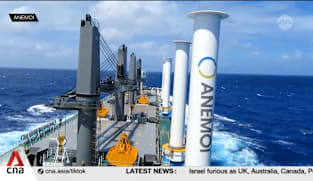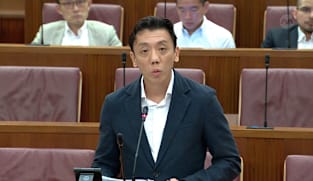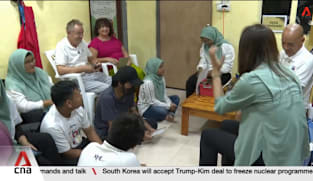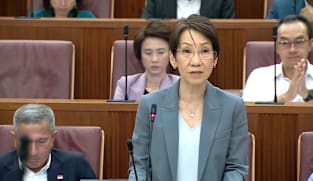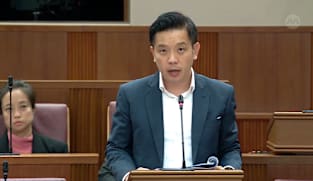Debate on President’s Address: Pritam Singh on role of Workers’ Party in opposition
Describing the Workers’ Party (WP) as an opposition that seeks to chip away at the people’s trust in Government is “a most unfair charge … which in reality chips away at the integrity of our Parliamentary democracy as an important platform for the exposition and contestation of ideas”. Leader of the Opposition Pritam Singh said this in Parliament on Friday (Apr 21) in response to Deputy Prime Minister Lawrence Wong’s speech earlier in the week. Mr Singh said that if all WP was doing was putting forward populist, unrealistic policies, the Government would not be actively considering some variation of the WP manifesto - ideas on anti-discrimination legislation, minimum wage and redundancy insurance. He listed some of WP’s past proposals to “demolish” the claim that the party has not put forward serious alternatives. These included verifying the educational qualifications of Employment Pass holders, broadcasting Parliamentary sittings live, having a national hydrogen strategy, BTO priority and forfeiture for non-selection of flats, and imposing a charge for the use of plastic bags. Mr Singh said WP will continue to advance alternative ideas if it has them, in spite of “political realities” including asymmetry in resources and information. He said there are reasons why there should be a strong opposition presence in Parliament, even before talk of a change in government, alternative agendas or budgets. First, Singaporeans want an opposition to check the PAP; second, it is in the collective self-interest that no one party can amend the Constitution at will; third, no one can ignore the possibility of a rogue government springing from within the PAP, in which case Singapore should have real political options. On Singapore’s foreign talent policy, Mr Singh restated his call to the Government to ensure that there are tangible benefits for Singaporeans. He said publishing outcome-based indicators would help to ensure public support or at least understanding. He noted that WP had, for years, asked for information on the number of intra-corporate transferees from India after the introduction of the CECA free trade agreement, which could have shed light and “reduced heat” before things reached boiling point. However, he said answers were not forthcoming - adding that “filing a Parliamentary question does not guarantee receiving an adequate and substantive answer … from which alternatives can germinate”. Mr Singh said being more open about releasing information will be fundamental to the refreshed social compact that the 4G leadership wants to forge with Singaporeans through the Forward Singapore exercise. Moving forward, he identified the growth of family offices and inflows of foreign wealth as “another potential tinder box” that the Government should look at closely. On GST, Mr Singh said accepting the system as it stands does not mean accepting every proposed hike. He asked if the Government would consider a pause in the next stage of the hike, in view of persistent inflation and to take into account corporate tax receipts in the wake of BEPS 2.0.
Describing the Workers’ Party (WP) as an opposition that seeks to chip away at the people’s trust in Government is “a most unfair charge … which in reality chips away at the integrity of our Parliamentary democracy as an important platform for the exposition and contestation of ideas”. Leader of the Opposition Pritam Singh said this in Parliament on Friday (Apr 21) in response to Deputy Prime Minister Lawrence Wong’s speech earlier in the week. Mr Singh said that if all WP was doing was putting forward populist, unrealistic policies, the Government would not be actively considering some variation of the WP manifesto - ideas on anti-discrimination legislation, minimum wage and redundancy insurance. He listed some of WP’s past proposals to “demolish” the claim that the party has not put forward serious alternatives. These included verifying the educational qualifications of Employment Pass holders, broadcasting Parliamentary sittings live, having a national hydrogen strategy, BTO priority and forfeiture for non-selection of flats, and imposing a charge for the use of plastic bags. Mr Singh said WP will continue to advance alternative ideas if it has them, in spite of “political realities” including asymmetry in resources and information. He said there are reasons why there should be a strong opposition presence in Parliament, even before talk of a change in government, alternative agendas or budgets. First, Singaporeans want an opposition to check the PAP; second, it is in the collective self-interest that no one party can amend the Constitution at will; third, no one can ignore the possibility of a rogue government springing from within the PAP, in which case Singapore should have real political options. On Singapore’s foreign talent policy, Mr Singh restated his call to the Government to ensure that there are tangible benefits for Singaporeans. He said publishing outcome-based indicators would help to ensure public support or at least understanding. He noted that WP had, for years, asked for information on the number of intra-corporate transferees from India after the introduction of the CECA free trade agreement, which could have shed light and “reduced heat” before things reached boiling point. However, he said answers were not forthcoming - adding that “filing a Parliamentary question does not guarantee receiving an adequate and substantive answer … from which alternatives can germinate”. Mr Singh said being more open about releasing information will be fundamental to the refreshed social compact that the 4G leadership wants to forge with Singaporeans through the Forward Singapore exercise. Moving forward, he identified the growth of family offices and inflows of foreign wealth as “another potential tinder box” that the Government should look at closely. On GST, Mr Singh said accepting the system as it stands does not mean accepting every proposed hike. He asked if the Government would consider a pause in the next stage of the hike, in view of persistent inflation and to take into account corporate tax receipts in the wake of BEPS 2.0.








